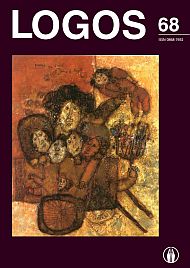Keturi Pagrindiniai Jacqueso Lacano Psichoanalizės Konceptai
The four fundamental concepts of psychoanalysis by Jacques Lacan
Author(s): Povilas SenūtaSubject(s): Epistemology, Structuralism and Post-Structuralism, Psychoanalysis
Published by: Visuomeninė organizacija »LOGOS«
Keywords: Jacques Lacan; psychoanalysis; unconscious; disere; repetition; transference;
Summary/Abstract: In this article the four fundamental concepts of the psychoanalysis by Jacques Lacan are analysed: the unconscious, the desire, the repetition and the transference. The key concepts of psychoanalysis were created by the originator Sigmund Freud, however later their meanings substantially changed, and it was the French psychoanalyst J. Lacan who had the greatest influence on these changes. His „return to Freud“ was an attempt to conceptualize psychoanalysis afresh, by rethinking, first of all, the key concepts. The unconsciousness and the desire in the works of J. Lacan assumed a poststructuralistic meaning, binded with the language and the socium – the Big Other, while the repetition and the transference reflected the symbolic idea of the new generation of psychoanalysis.
Journal: LOGOS - A Journal of Religion, Philosophy, Comparative Cultural Studies and Art
- Issue Year: 2011
- Issue No: 68
- Page Range: 214-222
- Page Count: 9
- Language: Lithuanian

